In 1820, a young, confident soldier returned from war in South America to his homeland of Great Britain. In London, he spoke of his bravery and how he had been named the Cazique (prince) of Poyais. A country in central America along the banks of Honduras’ Black River.
He told everyone of the fertile land of Poyais. About how it could yield three maize harvests annually and how the riverbeds were filled with chunks of gold. Who wouldn’t want to live there! Where the trees were greener than green, bearing every kind of fruit. The water was clearer than clear, and sweet enough to quench your thirst in a single sip. The sun was also always just bright and the evenings perfectly pleasant.
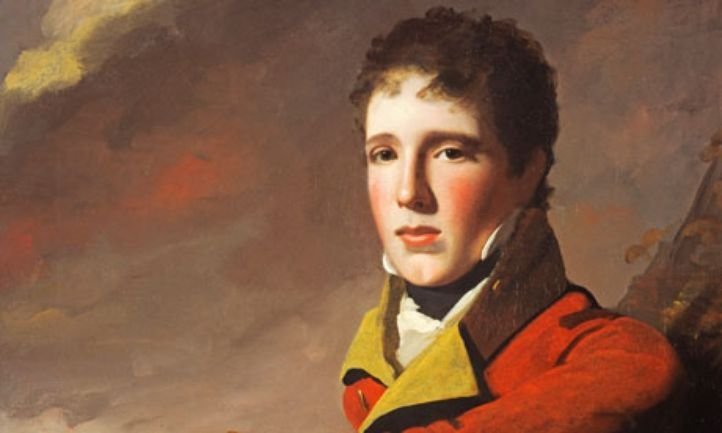
Sounds like an imaginary place an 8-year-old goes to in his dreams. A place someone made up in a school essay that would make their parents laugh. And here’s the catch. Poyais was an imaginary place after all, but the story teller was so amazing that he made people believe it was true. Yes, even adults! Thus began the story of Gregor MacGregor and the greatest confidence trick in history.
According to MacGregor, the country had everything but settlers who could help develop it. A Scot by birth, he intrigued his countrymen. And for a country with gloomy weather, Poyais seemed like a beautiful investment.
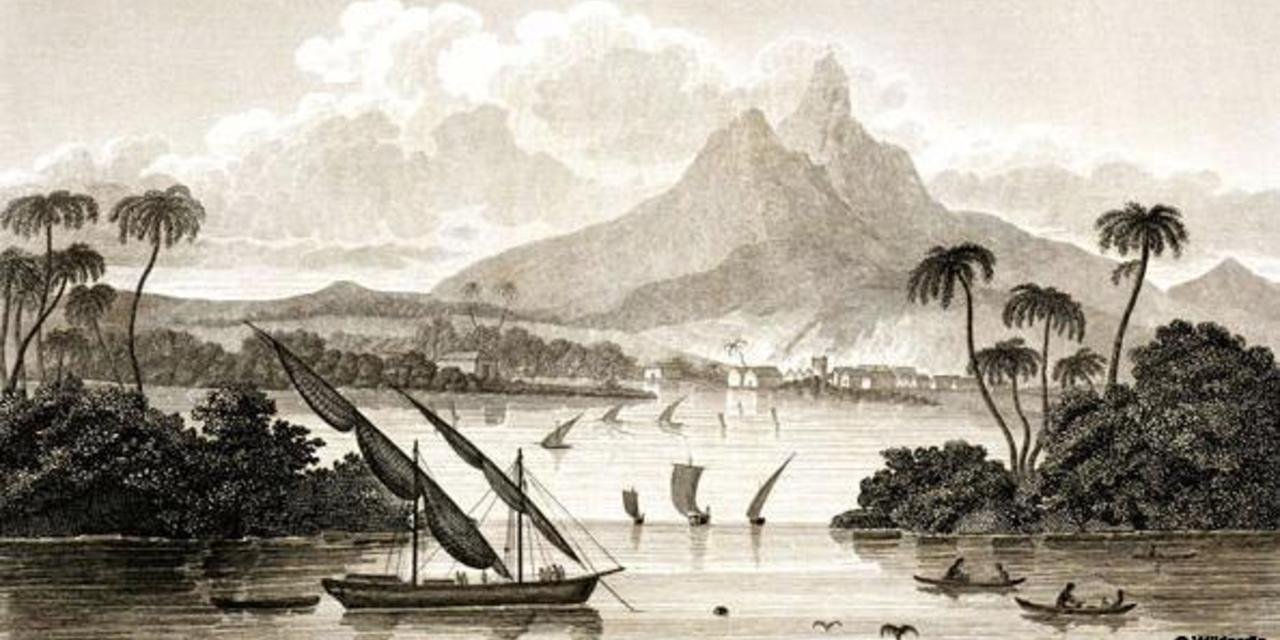
Gregor was impeccable with his preparations. This was almost 200 years ago and it was easy to trick people, but even then his plan seemed foolproof. He printed brochures and interviews in the paper, stating that it would take immense bravery to move to Poyais, but the profits one would reap would be unimaginable.
The Scots were proud people. They believed that they could turn this challenge into an opportunity. Scotland had no colonies and this was their chance. Gregor also went to the lengths of printing fake currency to fool people.
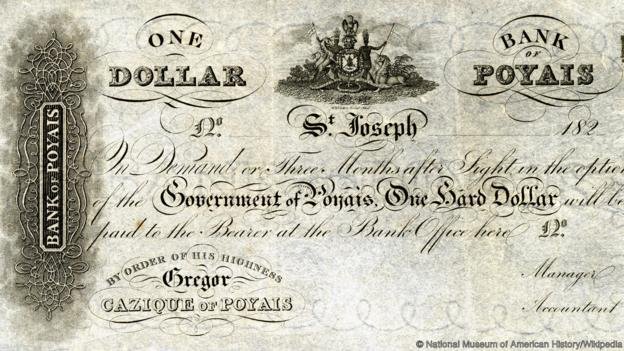
His genius was reflected in the fact that more than 7 ships were set to depart to the mystical land of Poyais. He had raised over £200,000 by selling the fictitious land and through government bonds of Poyais.
MacGregor escaped to France after raising the sum. 2 of the 7 ships would reach first and find out that Poyais was just a wasteland and this would’ve gotten him into trouble. So the fraud prince fled.
Around 250 people reached the promised land that turned out to be bogus. Two-thirds of them died while the rest were rescued. Warnings were sent to other ships not to sail to a country that never existed. MacGregor though was still at his ‘confident’ best. And he managed to rope in investors and settlers from France as well. But the French were a little more inquisitive. An investigation was held and MacGregor was jailed.
But a cunning man such as him was bound to escape soon. And he did.
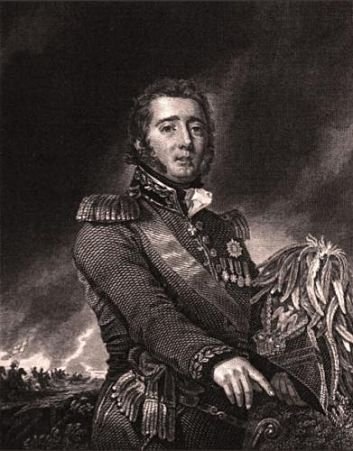
Here’s the impressive part. He was acquitted during another trial held later. In fact, some of the survivors were defensive of him and mentioned that he wasn’t at fault. And during the trial, he was acquitted of all charges while one of his partners was convicted of the massive fraud. He pulled a few more Poyais schemes after that.
In this lifetime, the market value of the bonds increased to £1.2 million (£3.6 billion in today’s money).
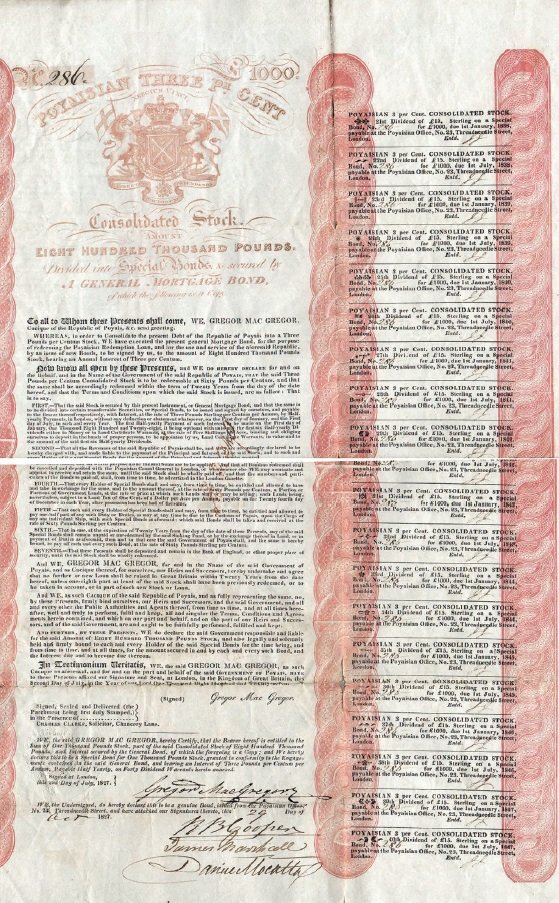
Also, don’t forget, he was once a soldier. Scared that the original bondholders would be after his life, he fled to Venezuela where he was part of the War of Independence. He was welcomed back as a hero since he had fought for their independence.
MacGregor lived 58 years of a very intriguing life before he died in Caracas, Venuzuela, in 1845 and was buried with full military honours.

















